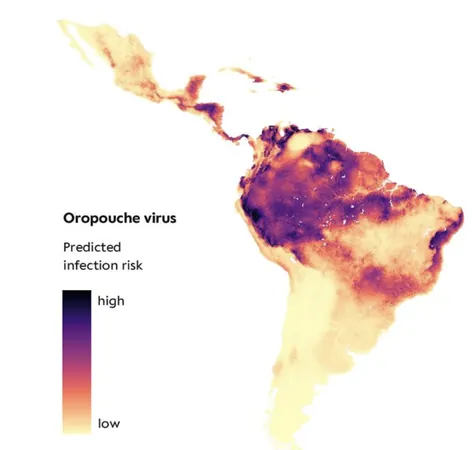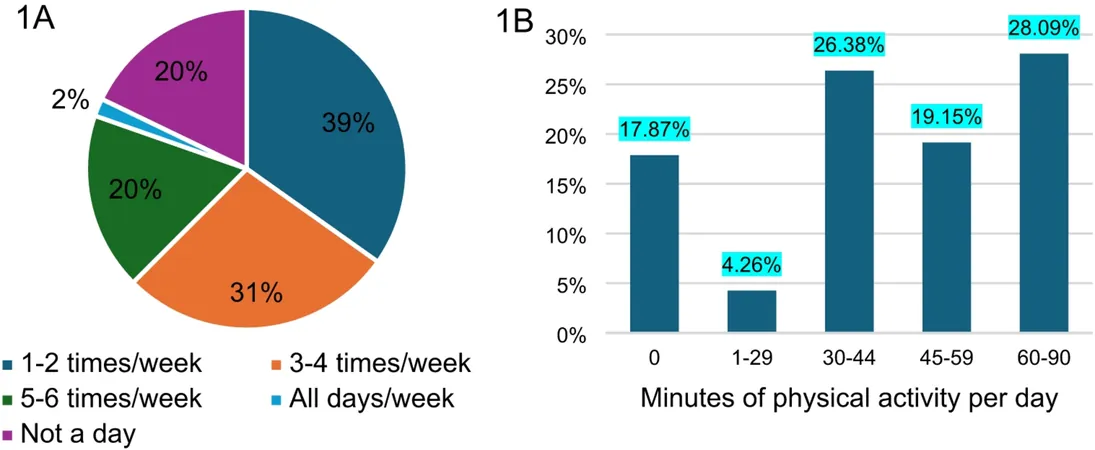
Unveiling the Truth: Oropouche Virus More Prevalent in Latin America Than We Thought!
2025-04-16
Author: Jia
A Hidden Menace in Latin America
The Oropouche virus, much like its notorious counterparts—dengue and Zika—causes serious febrile illnesses with alarming implications. Recent studies suggest that infections during pregnancy could potentially harm unborn children, raising the stakes even higher for public health in the region.
New Findings From Charité – Universitätsmedizin Berlin
In a groundbreaking study from Charité – Universitätsmedizin Berlin, researchers have discovered that the Oropouche virus is far more widespread in Latin America than previously recognized. Published in the esteemed journal, The Lancet Infectious Diseases, this research sheds light on the virus’s true prevalence and the climatic conditions that play a significant role in its transmission.
Under-Reported and Under-Diagnosed
First identified in the 1950s, Oropouche virus has seen only sparse official reports in Latin American countries, often citing just a handful of cases annually. However, an international team led by Prof. Jan Felix Drexler, who heads the Virus Epidemiology laboratory at Charité, has uncovered startling evidence that challenges this narrative.
"Our data indicates that Oropouche virus is massively under-diagnosed throughout Latin America," states Drexler, also affiliated with the German Center for Infection Research (DZIF). He emphasizes that in specific regions, as many as one in ten individuals might have already been infected with this lurking pathogen.
The Implications of this Discovery
This alarming revelation highlights the urgent need for enhanced surveillance, better diagnostic tools, and public health strategies to combat the spread of the Oropouche virus. With the potential for serious health complications, especially among pregnant women, authorities must take immediate action to address this hidden threat.
What Lies Ahead?
As research continues, understanding the full impact of the Oropouche virus in Latin America is more critical than ever. These findings could reshape public health policies and shed light on the intersection of climate conditions and viral outbreaks. The fight against viral diseases is far from over, and vigilance is the key to safeguarding health in the region.



 Brasil (PT)
Brasil (PT)
 Canada (EN)
Canada (EN)
 Chile (ES)
Chile (ES)
 Česko (CS)
Česko (CS)
 대한민국 (KO)
대한민국 (KO)
 España (ES)
España (ES)
 France (FR)
France (FR)
 Hong Kong (EN)
Hong Kong (EN)
 Italia (IT)
Italia (IT)
 日本 (JA)
日本 (JA)
 Magyarország (HU)
Magyarország (HU)
 Norge (NO)
Norge (NO)
 Polska (PL)
Polska (PL)
 Schweiz (DE)
Schweiz (DE)
 Singapore (EN)
Singapore (EN)
 Sverige (SV)
Sverige (SV)
 Suomi (FI)
Suomi (FI)
 Türkiye (TR)
Türkiye (TR)
 الإمارات العربية المتحدة (AR)
الإمارات العربية المتحدة (AR)